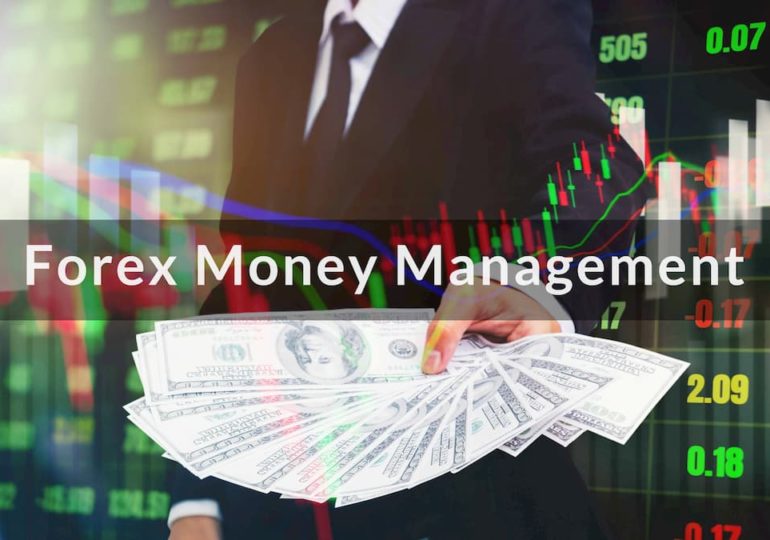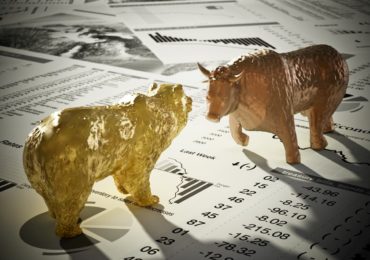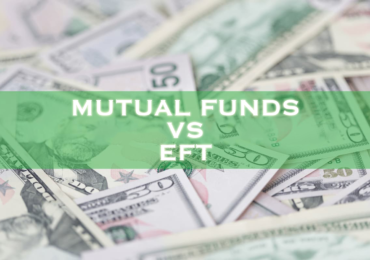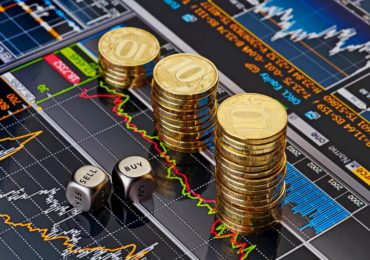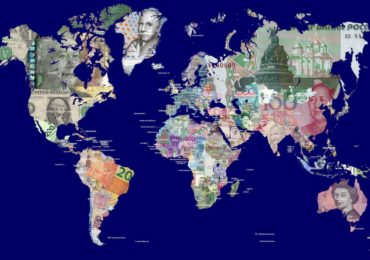Forex Money Management – All You Need To Know About It
The foreign exchange market (forex) is a global platform on which currencies of different countries are traded against each other. The platform operates around the clock, with traders from all parts of the world participating in currency exchange.
The buying and selling activities within the platform exhibit a country’s economic condition. The world’s largest and most traded market, forex, has an average daily turnover of approximately $5.1 trillion USD. A 50% share of this daily turnover goes to the UK and US market. The UK pound is among the top four most traded currencies with $650 billion USD worth of sterling trading every day.
Japan, Singapore, Hong Kong, Switzerland, and Australia are among other top forex markets. The most popular pairs in the global markets are EUR/USD, GBP/USD, USD/CHF, and USD/JPY. Furthermore, the top participants of forex markets are investment and commercial banks, central banks, hedge funds, traders, corporate, and speculators.
Types of Forex Market
The following are the different types of foreign exchange markets:
- Spot Market
Spot market offers instant payment to the buyers and sellers based on the existing exchange rate. Spot market trading accounts for one-third of the overall currency exchange. The trades in this market take a day or two to settle. Spot transactions are essentially in the form of buying and selling currency notes, transfer through banking systems, and traveller’s cheques. Major participants of the spot exchange market include commercial markets, central banks, dealers, speculators, etc.
- Forward Market
In the forward market, two parties – usually companies, government agencies, or individuals – agree to trade in the future, generally after 90 days. Within that time period, they can negotiate and modify the needs of the contracts, rendering more flexibility. Major participants of forward markets include commercial banks, central banks, traders, speculators, etc.
The Growing Prominence of the Forex Market
The forex or currency market is the biggest financial market in the world. However, its underlying purpose is often not understood by the masses. The importance of the forex market can be comprehended by learning how it helps a country’s economy. The forex market exists to cater to the current requirements of travellers, exporters, and importers. Contrary to equity markets, the foreign exchange market is not an investor-centric market. Rather, investors require the foreign exchange market to make investments overseas. The currency market will continue to prevail and operate, irrespective of the presence of investors and speculators. It is important to understand the important functions that drive a country’s economy.
Benefits of Trading in a Foreign Exchange Market
Assuming that you have a solid forex money management plan in hand, you can avail many lucrative benefits via forex trading. Some of the important benefits are mentioned below:
- It is a 24-hour Market
The currency market is an over-the-counter market, meaning there is no reliance on centralised exchanges. Forex trading occurs on a global level on a 24-hour basis. This allows investors to respond any time to currency fluctuations due to the occurrence of economic, social, or political events. It offers price volatility round the clock; therefore, you can also find numerous profitable trading opportunities. Participants don’t have to wait for the market to be open in order to trade; they have the privilege to trade anytime and anywhere they want.
- Leverage
Leverage is an important feature of foreign exchange trading, allowing traders to maximise their profits. It allows you to put in a small initial deposit in order to trade. Such margined trading can prove to be highly beneficial as you only risk a small percentage of your overall trading account.
- High Liquidity
The foreign exchange market is the most traded financial market in the world. With an immensely high number of global participants trading simultaneously, the market is more liquid, in comparison to any other form of financial market.
- Low Transaction Cost
In the currency market, the retail transaction cost is generally less than 0.1%. It could go up to 0.7% for larger transactions, so you do not have to worry about excessive transaction costs in forex trading.
Types of Risk Associated with Forex Trading

Similar to other financial markets, forex trading is also subjected to a certain risk. Money management protects traders against these risks. The following are some of the critical risks that every forex trader must be aware of:
- Transaction Risks
Transaction risks are based on the exchange rate and are related to the time difference between the beginning and end of a contract. The currency market works 24 hours, so the exchange rates can change even before the trade settles. Additionally, currencies can be traded at different prices during trading hours. The greater the time difference between entering and settling, the higher are the transactional risk.
- Leverage Risks
Leverage requires traders to put in a small initial investment known as a margin. Fluctuations in the market can cause margin calls, in which you are required to pay for an additional margin, and when the market conditions are volatile, excessive leverage can result in a massive loss of initial investment.
- Interest Rate Risks
Interest rates impact countries’ exchange rates. If the interest rate rises, the currency of the nation will strengthen because of the increased investment. On the other hand, if the interest rates fall, the currency is weakened due to the decreased investment. Because of the nature of an interest rate, and its impact on the exchange rate, the degree of difference between the currency values can result in a drastic change in forex value.
- Country Risk
When you are evaluating what currencies to invest in, you must analyse the economic structure and stability of the country. Generally, in developing countries, exchange rates are set to world-leading currencies such as the US dollar. In such situations, central banks must have an adequate reserve in order to maintain a fixed exchange rate. When there is frequent payment deficit, it can result in a currency crisis, devaluing the currency. Such scenarios can have a significant impact on forex trading and price.
- Counterparty Risk
The counterparty is the organisation that is providing the asset to you for investment. This risk refers to the risk of default from the dealer or broker. In a forex trade, forward and spot contracts on currencies are not protected by exchanges or clearing houses.
Forex Management – An Integral Aspect of Forex Trading
Trading in the forex market comes with a huge risk due to its volatile nature. If you are not careful, you can end up losing your hard-earned money. This is why traders must focus on forex money management. You cannot survive in any financial market without a solid money management plan in hand.
Proper money management skills are what set successful traders apart from the huge crowd of unsuccessful individuals. Forex money management is the administrative side of the trading process. The primary aim is to mitigate the risk factors by restricting market exposure such as overall open positions, the amount of capital risked on each trade, etc. It eventually ensures that you can handle the losses incurred within your trading system without having to drain your trading account.
As a trader, you must leverage both effective forex money management and a sound trading system in order to ensure consistent capital growth. The growth of your trading account depends on how much capital you put at risk, the payoff ratio, and the system’s accuracy. Along with controlling currency fluctuations by setting a fixed capital percentage to be risked, money management can also reduce the chances of currency swings via diversification.
Forex Money Management Tips
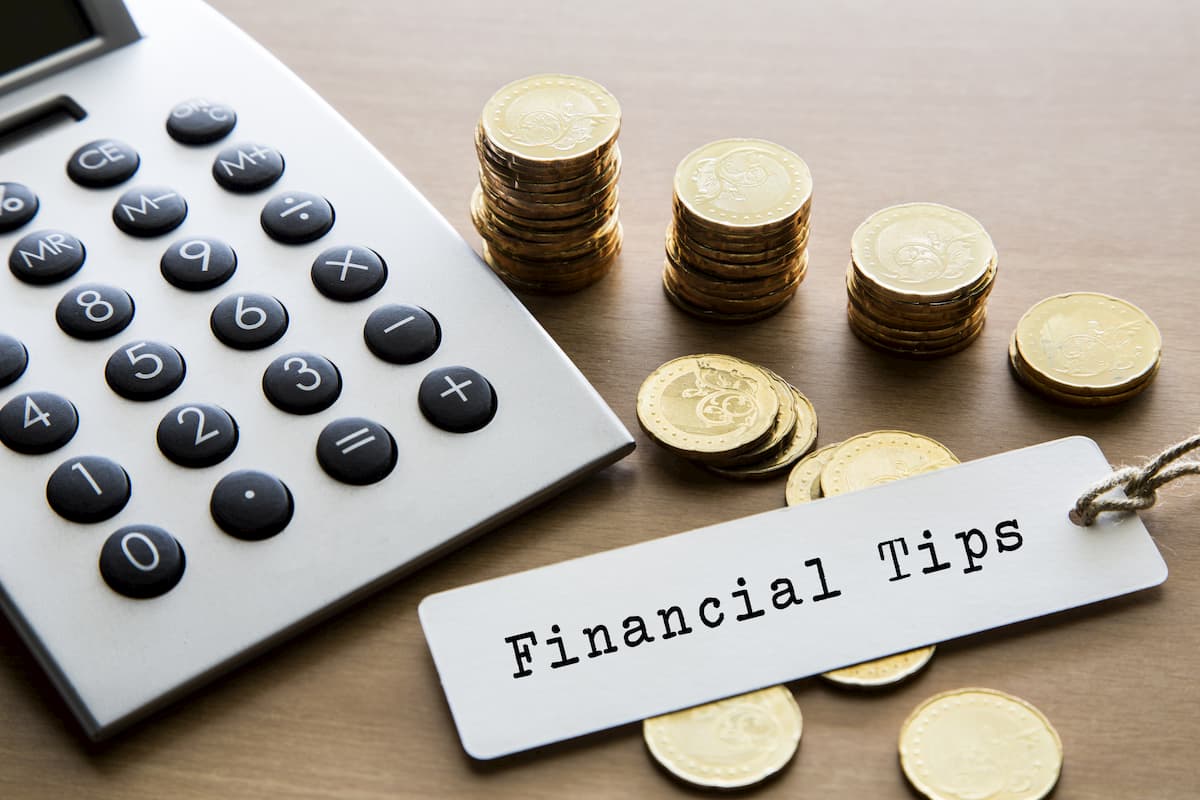
One of the primary reasons that traders lose money in forex is because they lack experience and awareness of forex management principles. The foreign exchange market is highly precarious in nature; therefore, the risk factor in it is very high. This is why proper money management is imperative to sustain in the forex market. Following are some of the important money management tips that will help both novice and experienced traders to mitigate risks and protect their money in the currency market:
- Educate Yourself
If you are a beginner, then the first step is to educate yourself with regard to the foreign exchange market. Lack of awareness regarding the forex trading principle is one of the biggest reasons why traders end up losing a massive amount of money in a short timespan. It is recommended to use a demo trading account in the beginning, in order to develop your trading skills. It will help you understand how the market operates. Post that, you can start trading in the live market, but invest a safe amount that will not impact your financial stability.
- Understand the Risk you are Taking
The portion of your trade is the amount of your trading account that you are willing to risk. Understanding the risk is one of the prominent aspects of forex money management that prevents you from draining your account on a series of consecutive losses. According to experts, the risk per trade should not be more than 2% of your trading accounting. If you are a beginner, then you should keep the risk percentage even lower.
- Avoid Trading Too Much
Overtrading, or trading too aggressively, is one of the biggest mistakes that the majority of beginners make. They often think the more you trade, the more money you will make. While it is true, you don’t have to trade every day. If a sequence of losses has already reduced your trading account to half, then evidently you are risking too much on each trade. Adjust your position size to signify the volatility of the asset you are trading. This will help you determine the correct level of risk. Ensure that a more precarious currency demands a smaller position as opposed to a less uncertain one.
- Leverage Stop Losses
A stop-loss order offers the guarantee that you would not lose a massive amount of money on a trade. There are four types of stops, including equity stop, chart stop, margin stop, and volatile stop. Irrespective of what type of stop-loss level you use, make sure that it reflects the target based on actual price action and market conditions. Position your stops around trendlines, chart patterns, channels, support and resistance levels, etc.
- Be Practical and Aware
When your expectations are not realistic, then you tend to play excessively to get the desired results. This, in turn, increases the risks, paving the way for traders to run into tremendous loss. Overtrading will never help you generate more return on investment, but trading wisely will. Trading in forex exchange is all about making a steady return, so set a realistic goal. Moreover, ensure that you exit immediately when you are certain that you have made a wrong move.
- Precisely Measure Your Position Size
Often, traders fail to accurately measure their position size in order to maintain their risk per trade. Calculating position size is a crucial aspect of forex money management as it defines a trade’s ability to make a profit.
In order to calculate position size precisely, divide the risk per trade with the stop-loss size in pips. The result will be equivalent to the maximum pip value that you are able to take in order to maintain defined risk-per-trade.
- Understand Your Leverage
Leverage in forex trading allows you to optimise the profits made from your available risk capital. However, it also increases the risk of potentials. While it is a resourceful tool, you need to understand your trading exposure. Your broker may provide you with certain leverage to allow you to place money on high-profit trade, but make sure you are careful while using this leverage. The higher the leverage, the higher your exposure to risk. Use leverage only when you understand the potential losses. This way, you can protect yourself from a major loss.
- Prepare for the Worst
You can never predict the forex market. The past may or may not be repeated, but it is wise to know that there is always a possibility. Therefore, ensure that you always evaluate the history of the currency you are dealing with before trading. This will allow you to take the necessary measures in order to protect yourself if something occurs. In the forex market, you should be prepared for price shock occurring.
- Avoid Trading on Tilt
While trading, you may lose a significant amount of your risk capital. It is natural to be tempted and get back your investment amount. However, here is the problem with this temptation – increasing your risk when the majority of your capital is already eradicated is not a wise move. Instead, try to reduce your trading size so that you have less at stake or even take a break until you have a high-probability trade.
- Think Long Term
Forex money management is centred around making a steady return on your investment. Furthermore, the effectiveness of your trading system is determined on your long-term performance. Don’t try to bend the rules to make your trading work. Another important forex money management tip would be not to take on too much stress. Instead, keep your mind clear; that way, you will be making more informed and calculated decisions that are not based on your emotions.
- Build a Trading Plan
Once you have gained an understanding of the forex market, build a trading plan. Include your money management strategies in the plan. A plan will help you steer clear from emotion and prevent your trading aggressively. Furthermore, with a trading plan, you have clear entry and exit strategies, allowing you to know when to gather your profits and cut out your losses. A well-structured trading plan helps you establish discipline in your trading, which is an integral aspect of effective forex money management.
- Covering up the Loss
Typically, the main focus of forex traders is to minimise the risk with every single trade. However, traders would also want to ensure that they are getting an adequate return from their trading sessions. They are considering that you have to aim to make a profit on a particular percentage of your initial trades.
When it comes to forex trading, covering up a loss is a complicated task. For instance, you have invested $5,000 USD and lost $1,000 USD; making the loss percentage 20%. So, in order to cover your loss, you would need to make a profit of 25% using the same trading amount. Pay close attention to the additional expenses such as spreads, commissions, etc.
Trading in the forex market is highly lucrative but also comes with a certain amount of risk. It is important that traders are well aware of both the pros and cons associated with forex trading. Forex money management is one of the important practices that you should master if you wish to survive in this extensively volatile market. While nothing is certain in the world of foreign exchange, above are some tips that will help you mitigate the probabilities of loss, save your hard-earned money, and earn a consistent return on investment.


